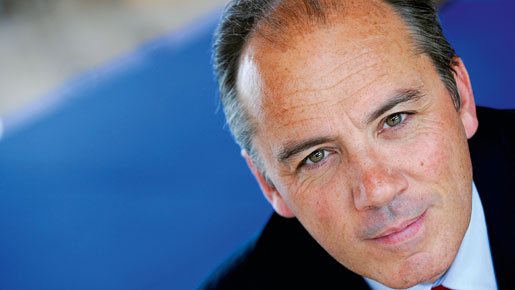
Confident and positively glossy, there’s something of the old school movie star about Stéphane Richard, France Télécom’s CEO and President. But behind the glittering façade of the distinctly European-looking 49 year-old lurks a more sinister truth – the fact that the company he has headed since March 2010 is closely associated with issues that are far from flattering, namely that of an unusually high suicide rate among its workforce. Far from a contagious “fad”, as former CEO Didier Lombard liked to describe the raft of suicides that has plagued the company, several staff members that chose to end their lives did so after having penned farewell notes citing pressure at work as the reason for their drastic actions.
Believed to have bred the unhappy staff culture at France Téleécom is poor management, as well as the drastic restructuring changes that took hold of the company recently. It has morphed from a traditional state utility to a leading telecommunications enterprise, and in the process forced employees to move from team-driven positions, often involving manual labour, to competitive and high-pressure call centre roles.
Matters of life and death
Pressure from media and trade unions prompted Didier Lombard to finally admit that he had indeed “made mistakes” that had caused his workforce increased stress. Shortly after his humiliating and career-busting confession he handed over the role of CEO to Monsieur Richard. As cynical as it may sound, Lombard’s grave misconduct very much served in Richard’s favour, as it saw the handover taking place much earlier than had originally been scheduled. In such fashion, Richard advanced the internal career ladder in the space of a very short period.
He first joined the telecommunications giant in September 2009, serving as Chief of International Operations. Shortly afterwards, the promising new-recruit was promoted to deputy CEO in charge of operations in France. He then became CEO Delegate on January 1, 2010 and CEO just two months later. The handover, not surprisingly, was far from being a bed of roses for Didier Lombard. But since Richard is seen as something of an accomplice of Lombard – after all, he was very much part of the company’s management board during the height of the suicide storm that peaked in 2009 – he didn’t exactly enter the throne as a saintly being.
Indeed, all eyes were on Richard to clean up the mess and put an end to the never-ending suicide saga – a dark and sinister affair that has yet not halted entirely, as new suicides reached the headlines of the French media last summer. Yet, Richard has calmed critics by addressing the problems, and has openly professed that France Télécom are to blame for the suicides.
Cash and carry on
Aside from attempting to eradicate any bad associations, one of Richard’s main agendas for the former state monopoly is to offer its 217 million customers advanced services over its four key platforms, namely fixed line and mobile phone telephony, broadband, and IPTV. Competition is high, so complacency is out of the question, despite the fact that the company is Europe’s thirds-largest player in its field of operations.
A man of French establishment pedigree, Richard is a friend of Nicolas Sarkozy and is a graduate of elite civil service college École Nationale d’Administration. Since leaving the glamorous establishment, Richard has flitted between a string of roles in both the administration and the private sector. His biggest career move was to enter property group Nexity, for which he served as CEO. Other top entries forming part of his list of merits include a stint as top aide to Finance Minister Christine Lagarde, and serving as the CEO of Veolia Transport.
A strong CV aside, Richard’s well-padded bank account is another talking point constantly raised in media and among his peers. Sitting on a fortune estimated at tens of millions of euros, most of the wealthy business mogul’s funds were harvested from the sale of his stake in Nexity. Not a man of great modesty, Richard became a victim of public ridicule when he boasted that he was now so wealthy that he didn’t bother to claim expenses at the Economy Ministry.
Investment in Iraq
His close relationship to the prime minister is another fact that sets him apart and creates a bit of jealousy. Particularly since the pint-sized president is known to be anything but trusting when it comes to dwellers within the Parisian financial establishment. When first embarking on the CEO tenure at France Télécom, Richard stated that he – unlike his predecessor who attempted, but failed, to get his hands on Telia Sonera in 2008 – would never go on a spending spree for very large mergers and acquisitions. Richard’s attitude seemed to please investors, such as the French government that still hold a stake of 27 percent.
Despite his promises, Richard couldn’t resist pouncing on Korek Telecom, and closed a deal in March 2011 that resulting in France Télécom fetching a 44 percent stake in the Iraqi telecom player. “The acquisition of this stake in Korek Telecom is a new step in our policy of expansion outside Europe, and contributes to our stated aim of doubling our revenues in Africa and the Middle East by 2015. I am delighted to contribute to this strategic partnership, especially at a time when Korek Telecom is expanding its operations across the entire country, thereby offering the latest services and technologies to the whole Iraqi population.”

